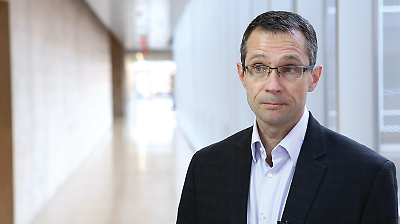Global Genome Initiative Finding Roots of Mental Illness
Abstract
By sharing data, technology, expertise, and new discoveries, researchers are quietly but rapidly pushing forward to reveal the genetic and biochemical causes of psychiatric disorders.
This is the first of a two-part series on the state of the art in studying the genetics of mental illness. Part 2 will look at advances in research on the genetics of schizophrenia.
The past few years have seen a flurry of genomewide association studies (GWAS) reporting newly discovered, statistically robust genetic variants linked to schizophrenia, bipolar disorder, and attention-deficit/hyperactivity disorder (ADHD). The field of psychiatric genetics seems energized once again.
For example, a recent study uncovered 22 locations on chromosomes (loci) associated with increased risk of schizophrenia (Psychiatric News, October 18), and cross-disorder analyses pointed to overlaps of risk loci among five psychiatric disorders (Psychiatric News, April 5, September 17). Several genes have emerged as potential links in the chain of biological dysfunction. These discoveries are robust and replicable, with convincing statistical power.
Behind the progress is a worldwide collaboration called the Psychiatric Genomics Consortium (PGC), which has united most researchers in the field and created a synergy that is rapidly advancing the biochemistry of mental illness. The consortium has already produced tantalizing clues about the nature of these disorders, with the promise of a lot more to come.
Previously, twin and family studies estimated that psychiatric disorders are partially heritable and that some, such as schizophrenia, bipolar disorder, ADHD, and autism, are highly (70 percent to 80 percent) heritable. However, early searches for disease-causing genes have not turned up major contributors that follow the Mendelian inheritance pattern. Scientists have been hunting for the culprit genes for over a decade in common variants, rare variants, and copy number variants (CNV).
Early genetic studies found a handful of candidate genes in schizophrenia and bipolar disorder that each contribute to only a very small percentage of illness in all patients, which led scientists to believe that psychiatric disorders each involve a large number of disease-related genetic defects. GWAS in other multifactorial diseases, such as diabetes, cardiovascular diseases, and autoimmune diseases, demonstrated that the smaller a gene’s contribution to disease risk, the larger the study sample has to be in order to detect it while weeding out false “hits.”
It became apparent that psychiatric genetic research needs big datasets, big tools, and “big science.”
Thus, consortia in the United States, United Kingdom, and Europe were formed to pool separate genomic datasets to achieve large sample sizes. In 2007, the PGC emerged to “conduct meta-analyses of genomewide genetic data” collected from patients with various psychiatric disorders, according to the consortium’s Web site (http://pgc.unc.edu).

Patrick Sullivan, M.D., is one of the founders of the PGC, a coalition including “nearly all researchers in the field of psychiatric genetics.”
The PGC is a coalition of, to date, approximately 400 scientists from 25 countries, encompassing “nearly all researchers in the field of psychiatric genetics,” Patrick Sullivan, M.D., a professor of genetics and psychiatry and director of the Psychiatric Genomics Department at the University of North Carolina School of Medicine, told Psychiatric News. Sullivan is a founding member of the PGC and coordinates the major depressive disorder (M.D.D) analysis group.
As researchers around the world independently conduct their studies, the genotyping data of patients, families, and controls they have collected are forwarded to one of several repositories, including the National Institute of Mental Health Genomics Resource and Repository (https://www.nimhgenetics.org), the database of Genotypes and Phenotypes (dbGaP, http://www.ncbi.nlm.nih.gov/gap), and the Wellcome Trust Case-Control Consortium (http://www.wtccc.org.uk).
Initially, the datasets included schizophrenia, bipolar disorder, M.D.D, autism, and ADHD. Recently, genotyping data from patients with anorexia, posttraumatic stress disorder, substance use disorders, as well as obsessive-compulsive disorders and Tourette syndrome have been added.
Each group conducts meta-analyses of pooled data on the disorder, and members agree to share their results as quickly as possible. They also share the credit, as each PGC publication lists all investigators who have contributed data to the analyses.
Currently, 170,000 individuals’ genotyping data, including patients, families, and controls, are being analyzed by PGC. The number will increase by another 100,000 within the next year. The consortium is “by far the largest biological experiment in the history of psychiatry,” said Sullivan.
“Scientists in the field have come together in an altruistic manner,” he noted. “We just had two groups who contributed their data even before their own studies are published. It shows a profound sign of commitment to collaboration.” ■



